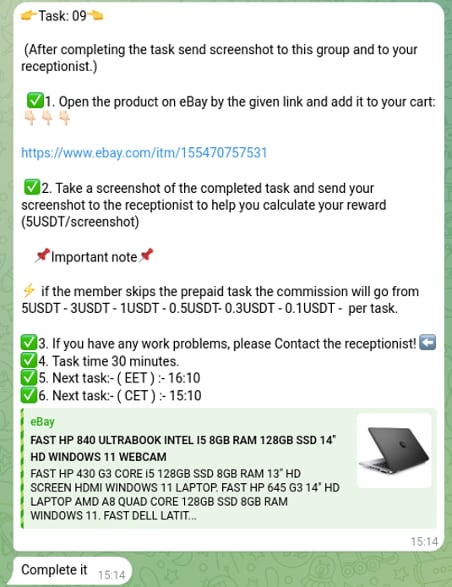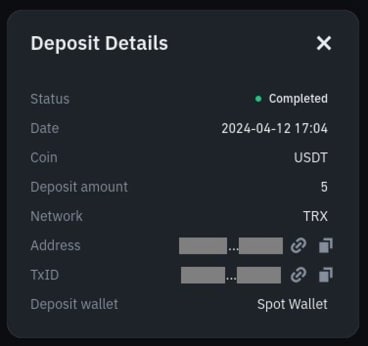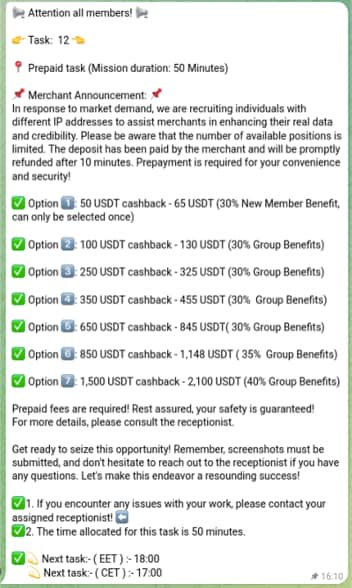Unmasking the part-time job scam—how does it work
Our Norton experts volunteered themselves as targets to uncover the ins and outs of part-time job scams. This is what we learned.

There are many people in need of a job—more precisely, of income. And then, finally, a hiring manager sends them... a WhatsApp message? There’s something off about the offer. It seems too easy, too good to be true.
The promise of easy money can be incredibly tempting, especially when it comes at the time we need it the most. However, if the opportunity looks too perfect, it probably is. Part-time job scams are a threat that’s becoming commonplace, targeting people who are vulnerable enough to not notice the red flags.
That’s why we decided to go undercover and follow through with one of these scams to see how they operate first-hand.
How the part-time job scam works
Scammers send messages via platforms like Telegram or WhatsApp with promises of lucrative part-time job opportunities. These messages lure potential targets with easy tasks that promise steady income or a large payout.


Examples of unsolicited messages from scammers that try to lure their targets with offers of remote work
At first, the scam seems harmless. The attackers begin asking for simple tasks, such as:
- Adding products to shopping carts on sites like eBay and Amazon.
- Following and interacting with accounts on Instagram or TikTok.
- Watching and liking YouTube videos.
- Writing reviews for hotels, restaurants, or entertainment on platforms like Google or Yelp.
- Participating in online surveys or playing internet-based games.
Into the scammer’s trap
We recently followed through with one of these scams. There would be a list of tasks, each with its own level of urgency and potential rewards, advertising pay ranging from $5 to $10 per task completed. Our task consisted of adding products to our eBay shopping cart and sending screenshots to the scammers.

Example task where victims are asked to add products to eBay shopping cart, then send screenshots to scammers with the promise of a payout
After completing a few tasks, the scammers deposited a small amount of USDT cryptocurrency into our wallet, as we could verify in our own account.

USDT Cryptocurrency transaction sent by the scammers to our crypto wallet
The scammers may deposit real cryptocurrency into the target’s wallet once the target completes some of the easy starting tasks. They do this to make the scheme appear genuine––going so far as to deposit more than once to establish trust.
This is all in build up to the main part of the scam, where the scam actors provide a ‘VIP’ or main task, urging the victim to pay an advance fee with a guaranteed return, usually in the 30-50% range.
Escalating to an advance fee fraud
We were added to a larger group chat that featured the VIP tasks, with numerous other users requesting the listed tasks and submitting proof of receiving commission transactions from the scammers. It’s reasonable to assume that most of the accounts in the group are fake accounts or even bot accounts.

VIP task sent to big group, urging victims to send a pre-payment to receive ‘cashback’ with up to 40% of the pre-payment
There is a large variety in the amount that the victim may deposit. Once the target selects a high-value option and deposits the money, the scammers will have achieved their goal and the target’s money is already lost. At this point, the scammers either disappear or provide fabricated reasons for not returning the money, demanding more payments under the threat of losing the initial investment.
How to protect yourself from a part-time job scam
The part-time job scam may seem like a house of mirrors, where nothing is as it seems. Yet, there are things you can do to discern whether it’s a scam or not.
- Recognize the red flags. Unsolicited messages promising easy money should immediately raise suspicions. Legitimate job offers typically come through official channels, include an interview process, and don’t promise large sums for trivial tasks.
- Verify if the company is real. Research the company or offer. Legitimate businesses have a digital footprint beyond a single platform or message chain.
- Be wary of payments in cryptocurrency. Be cautious of job offers involving cryptocurrency transactions. Scammers exploit their anonymity and irreversibility.
- Never ever pay to earn. Genuine job offers do not require upfront payments. If a job requires you to pay before you start earning, it's almost certainly a scam.
- Use cybersecurity tools. Tools like Norton Genie can help identify and avoid potential scams in real time.
- Report the scam. Report suspected scams to local authorities, such as the FTC and the FBI.
Don’t accept a suspicious offer
The impact of the part-time job scam can be profound. We’ve seen many sharing their stories in forums such as Reddit, giving us a clear picture of the distress these scams cause.
We can’t completely avoid receiving suspicious messages, but we can stay informed and learn how to recognize the red flags. When hunting for a job, it’s better to be the hunter than the prey.
Editorial note: Our articles provide educational information for you. Our offerings may not cover or protect against every type of crime, fraud, or threat we write about. Our goal is to increase awareness about Cyber Safety. Please review complete Terms during enrollment or setup. Remember that no one can prevent all identity theft or cybercrime, and that LifeLock does not monitor all transactions at all businesses. The Norton and LifeLock brands are part of Gen Digital Inc.





Want more?
Follow us for all the latest news, tips, and updates.